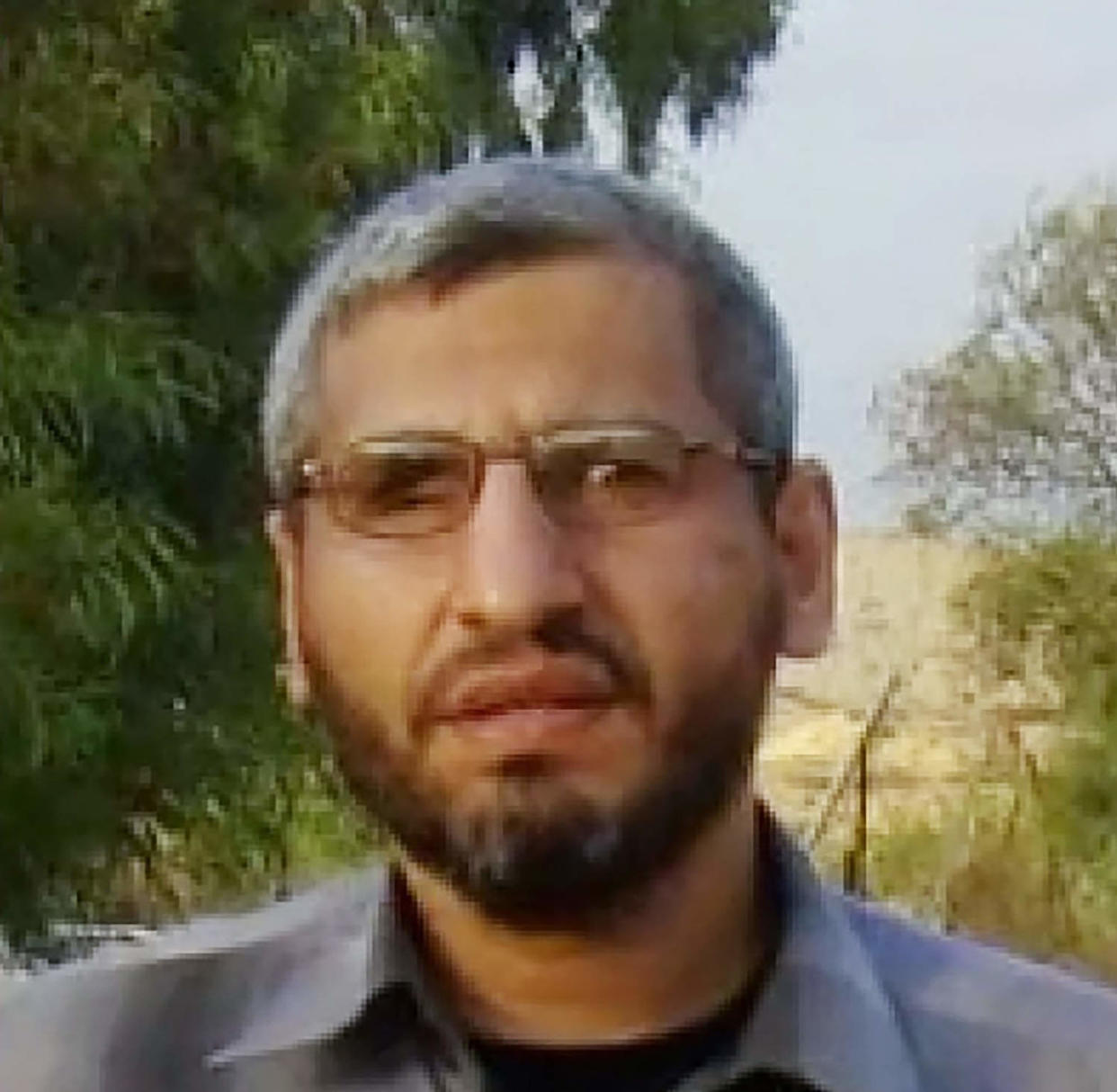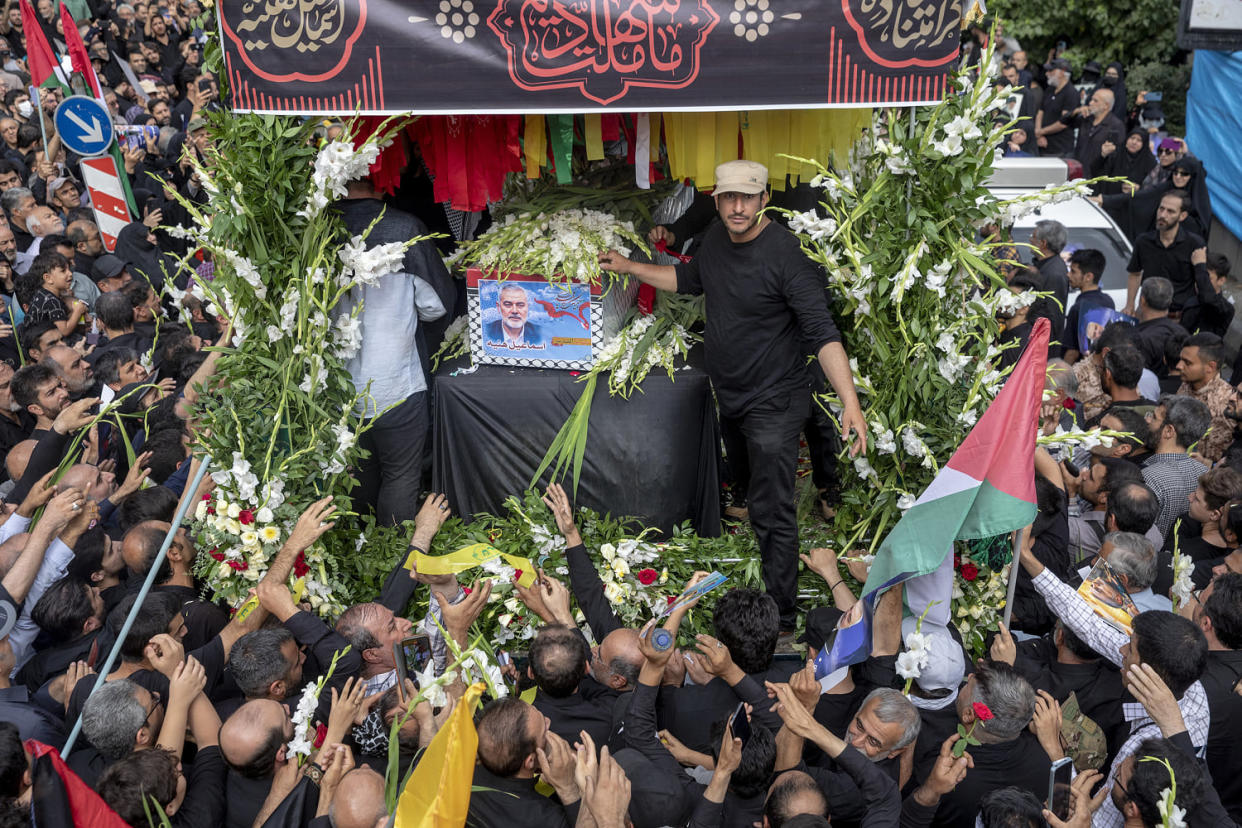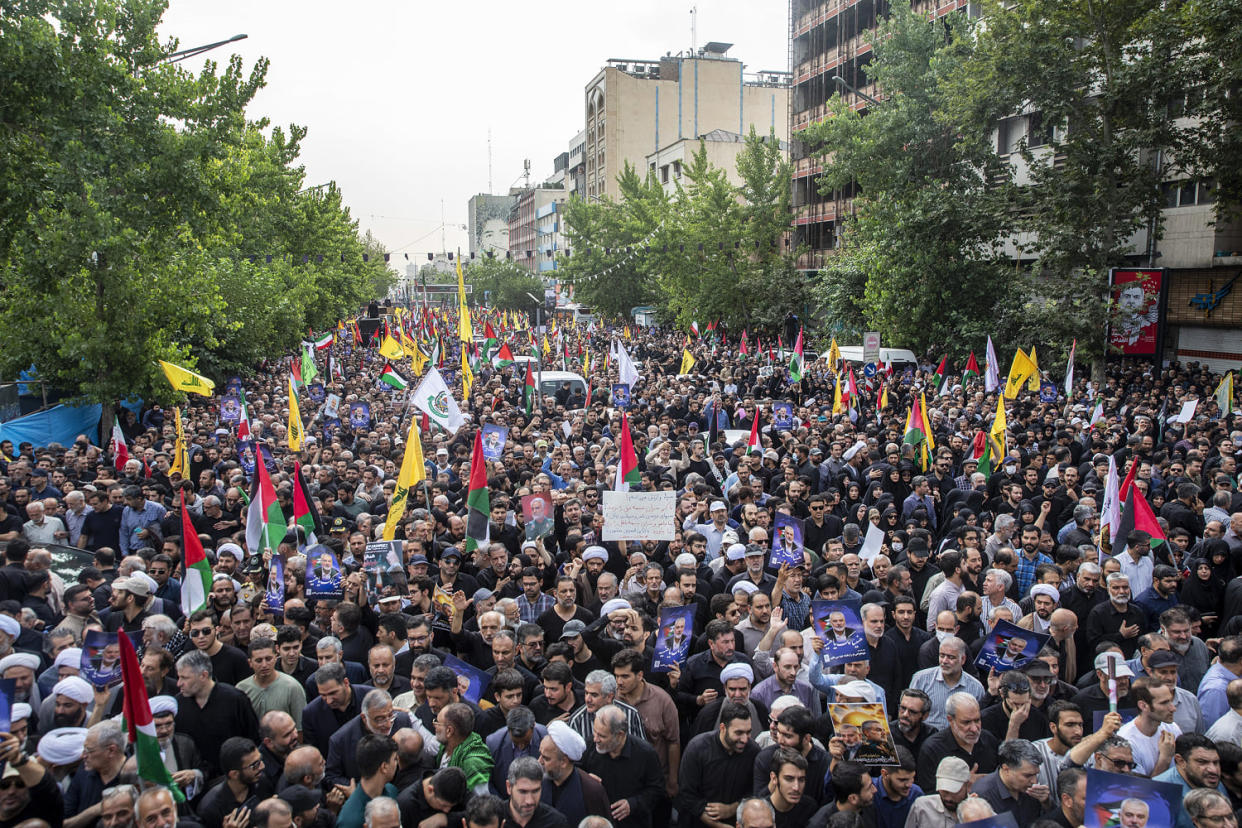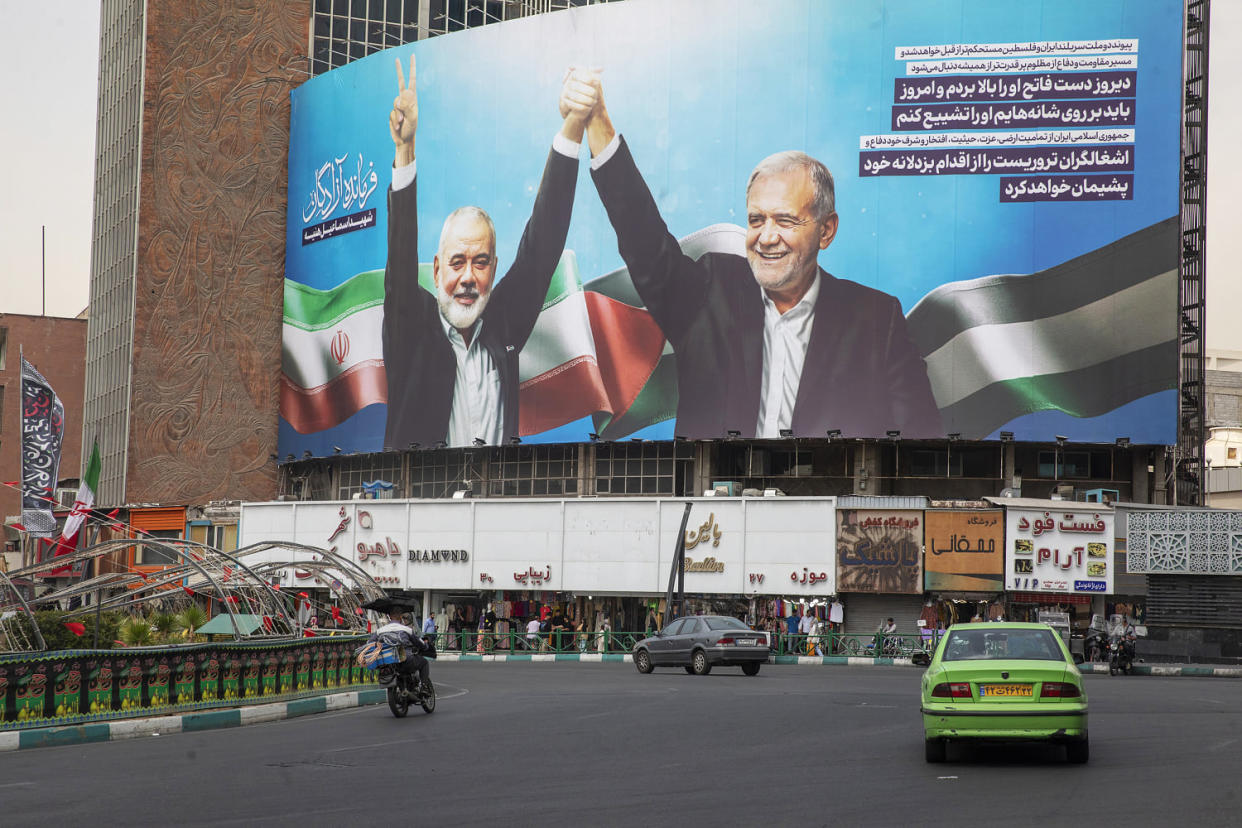Hamas military leader Mohammad Deif, an architect of the Oct. 7 attack, is confirmed killed by Israel
Israel's military on Thursday confirmed the death of Mohammed Deif, the leader of Hamas' military wing — the third high-profile Hamas or Iran-linked figure it says it has killed in recent weeks.
As head of the Qassam Brigades, Deif was believed to have been one of the masterminds of Hamas’ Oct. 7 terror attack on southern Israel, which triggered the war in the Gaza Strip, now in its 300th day.
The announcement came as the funeral was held for Hamas’ political chief, Ismail Haniyeh, a day after he was killed in Iran.
As fears of an all-out war in the Middle East deepen, a spokesperson for the Israel Defense Forces said what it called an “intelligence assessment” had confirmed that Deif had been killed when fighter jets struck an area in the city of Khan Younis in the Gaza Strip on July 13.
“Other terrorists were eliminated” alongside Deif, the statement added.

Israeli Defense Minister Yoav Gallant called Deif’s death “a significant milestone in the process of dismantling Hamas as a military and governing authority in Gaza, and in the achievement of the goals of this war,” in a post on X.
Hamas did not immediately comment on the Israeli announcement, which came as crowds gathered in Iran's capital for the funeral procession of Haniyeh, whose assassination early Wednesday sent shockwaves across the Middle East and further afield.
Hamas and Iran promised vengeance for his death in an airstrike, which was carried out after Haniyeh had attended the inauguration ceremony of Iranian President Masoud Pezeshkian.
Iran's Supreme Leader Ayatollah Ali Khamenei, who presided over Haniyeh's funeral ceremony at Tehran University on Thursday, said in an earlier statement on X that his death had “caused our grief, but it has also prepared the ground for a severe punishment.”
He did not elaborate on how that punishment might be meted out, but after two of its top commanders were killed in an airstrike on a compound in Iran’s Syrian Embassy in April, Tehran responded by firing hundreds of rockets and drones at Israel.


“The fact that he was assassinated as a guest of Iran makes this extremely humiliating for Iran,” Andreas Krieg, a military analyst and senior lecturer in security studies at King’s College London, told NBC News on Thursday. “It is a very symbolic slap in the face by Israel.”
“While Deif’s institutional knowledge and know-how will not be easily replaced,” Krieg said, Deif was “just one node in a network, albeit a central one.”
Tensions between Iran and Israel have simmered, if not boiled, for decades since the 1979 Islamic Revolution in Iran, which does not officially recognize Israel’s right to exist and has been a significant supporter of the Palestinian cause.
Israel has long viewed Iran as an existential threat, particularly due to its backing of militant groups in the region, known as the “axis of resistance,” which includes Hezbollah in Lebanon and the Houthis in Yemen.
On Tuesday, Israel killed a senior commander of Hezbollah on the outskirts of the Lebanese capital, Beirut. Israel blamed Hezbollah commander Fuad Shukr for a rocket attack Saturday that killed 12 children in the Israeli-occupied Golan Heights.
Kreig said “neither Israel nor Iran has any interest in all out escalation,” and both Haniyeh and Shukr’s “assassinations occurred within the confines of the sub-threshold war both sides have been involved in.”
He added there was a possibility that Netanyahu could use the assassinations of Deif and Haniyeh to create a “victory narrative... to gloss over the strategic defeat in the Gaza War.”

“There is hope that mediators like Qatar and the United States can help creating an offramp from this that will pull the region from the brink of war,” he said.
Any response by Iran would likely be “within the parameters of the shadow war that has been ongoing for years,” he said. Tehran does not have to react with “overwhelming force” and is likely to do it “at a time of their choosing without tipping the balance,” he added.
His comments came as Secretary of State Antony Blinken appealed for “all parties” in the Middle East to avoid escalatory actions that could plunge the region into further conflict, and said Thursday that a cease-fire between Israel and Hamas was the only way to begin to break the cycle of violence and suffering.
Some, including Qatari Prime Minister Sheikh Mohammed bin Abdulrahman Al Thani, have already suggested Haniyeh’s death could deal a serious blow to efforts to free hostages and negotiate a cease-fire in Gaza, where almost 40,000 people have died since Oct. 7.
“How can mediation succeed when one party assassinates the negotiator on the other side?” he asked in a post on X, shortly after Haniyeh's death was confirmed.






